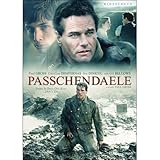Rendezvous with Madness (RWM) is the world’s first and longest running film festival showcasing films that address issues of mental health and/or addiction. The festival provides a distinct venue for filmmakers to screen their work and has grown into a filmmaker favourite over the past eighteen years.
THE OBJECTIVES OF THE RENDEZVOUS WITH MADNESS FILM FESTIVAL
• To explore the facts and mythologies of mental illness and/or addiction, as presented by Canadian and international filmmakers.
• To facilitate discussions amongst filmmakers and audiences with respect to these cinematic representations.
• To provide filmmakers an opportunity to screen their films that may otherwise not be seen.
• To increase awareness, and advocacy for mental health and addiction issues and concerns.
RWM brings independent Canadian and International film and video to the public. RWM features strong programs that address the facts and mythologies of mental illness and addiction.
Each of the various programs focuses on different themes and includes panel discussions involving the filmmakers, artists and people with professional and personal experience with mental illness and addiction.

